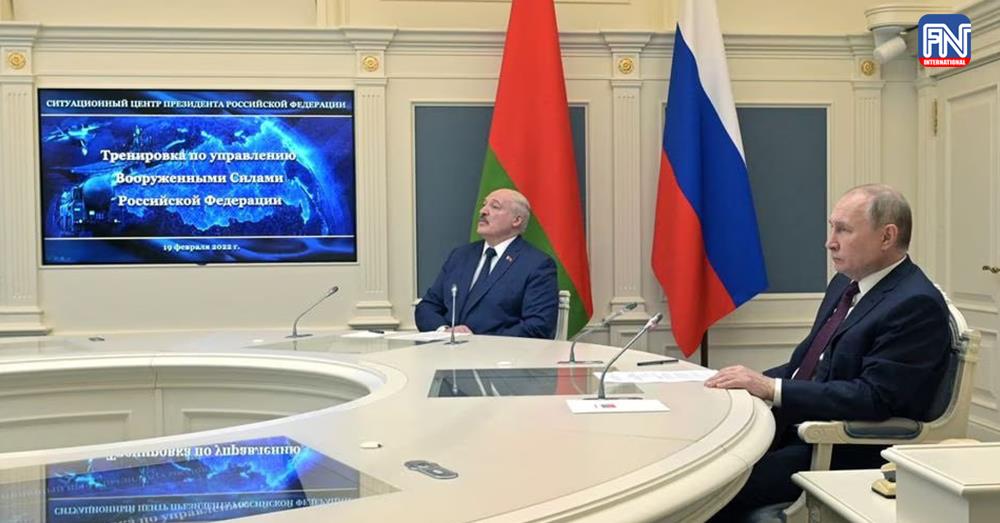MOSCOW, March 25 (Reuters) - Russia will station tactical nuclear weapons in Belarus, President Vladimir Putin said on Saturday, sending a warning to NATO over its military support for Ukraine and escalating a standoff with the West.
Although not unexpected and while Putin said the move would not violate nuclear non-proliferation promises, it is one of the Russia's most pronounced nuclear signals since the beginning of its invasion of Ukraine 13 months ago.
The United States - the world's other nuclear superpower - has reacted cautiously to Putin's statement, with a senior administration official saying there were no signs Moscow planned to use its nuclear weapons.
Putin likened his plans to the U.S. stationing its weapons in Europe and said that Russia would not be transferring control to Belarus. But this could be the first time since the mid-1990s that Russia were to base such weapons outside the country.
"There is nothing unusual here either: firstly, the United States has been doing this for decades. They have long deployed their tactical nuclear weapons on the territory of their allied countries," Putin told state television.
"We agreed that we will do the same - without violating our obligations, I emphasize, without violating our international obligations on the nonproliferation of nuclear weapons."
Tensions have grown over the war in Ukraine after heavy supplies of Western weaponry to Kyiv and Moscow shifting its rhetoric on its military operation away from "demilitarisation" of its neighbour to fighting "the collective West" there.
Some hawkish Russian politicians and commentators have long speculated about nuclear strikes, saying Russia has the right to defend itself with nuclear weapons if it is pushed beyond its limits.
"Tactical" nuclear weapons refer to those used for specific gains on a battlefield rather than those with the capacity to wipe out cities. It is unclear how many such weapons Russia has, given it is an area still shrouded in Cold War secrecy.
Experts told Reuters the development was significant, since Russia had until now been proud that unlike the United States, it did not deploy nuclear weapons outside its borders.
The senior U.S. administration official noted that Russia and Belarus had been speaking about the transfer of nuclear weapons for some time.
"We have not seen any reason to adjust our own strategic nuclear posture nor any indications Russia is preparing to use a nuclear weapon. We remain committed to the collective defence of the NATO alliance," the official said.
